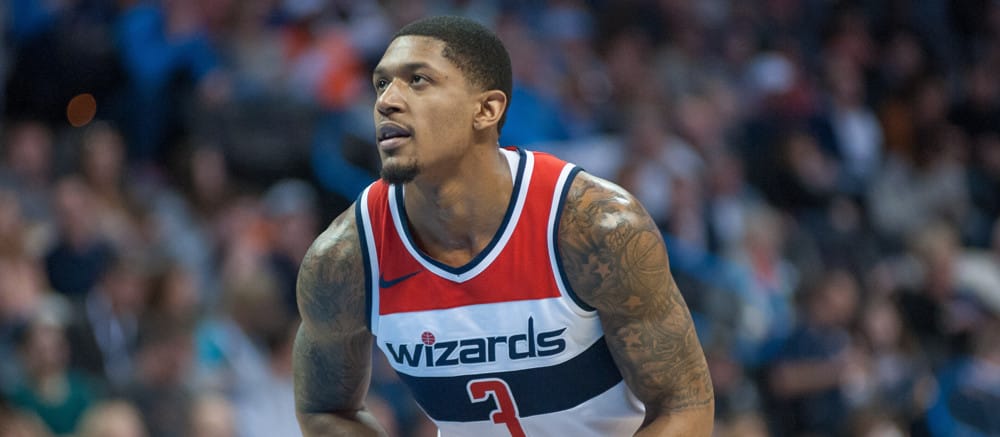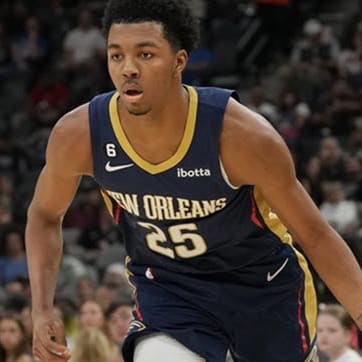This article is part of our NBA Draft Kit series.
Separating players into tiers is a popular method of draft prep, and it de-emphasizes the idea that you must draft a player because his projections come out slightly more favorably than those of another player. Often, the difference between a player ranked, say, 30th and a player ranked 45th is smaller than you think.
Tiers help account for those discrepancies by grouping together players with similar risk/reward profiles, empowering the fantasy owner to make the choice for themselves.
Some notes on methodology:
- Tiers take into account players with top-120 upside. Essentially, players that could reasonably come off the board in a standard draft.
- Players within tiers are not ranked in a specific order. Ideally, everyone in a tier has an argument to be taken over anyone else in that tier.
- Plenty of players are multi-position eligible, but to avoid confusion and redundancy, each player only appears at what we assume to be their primary position
- Tiers are based on 8-category, rotisserie scoring
Tier 1: Potential No. 1 Overall Pick
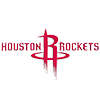 James Harden, Rockets
James Harden, Rockets
The MVP runner-up put together another dominant offensive campaign last season, winning the scoring title by more than eight points per game. Harden's 40.5% usage rate ranked second all-time, and he added 7.5 assists, 6.6 rebounds and career-best 2.0 steals per game. After another postseason flame-out, the Rockets swapped Chris Paul for Russell Westbrook, which makes projecting the new backcourt duo a difficult task. At the end of the day, though, the Rockets are Harden's
Separating players into tiers is a popular method of draft prep, and it de-emphasizes the idea that you must draft a player because his projections come out slightly more favorably than those of another player. Often, the difference between a player ranked, say, 30th and a player ranked 45th is smaller than you think.
Tiers help account for those discrepancies by grouping together players with similar risk/reward profiles, empowering the fantasy owner to make the choice for themselves.
Some notes on methodology:
- Tiers take into account players with top-120 upside. Essentially, players that could reasonably come off the board in a standard draft.
- Players within tiers are not ranked in a specific order. Ideally, everyone in a tier has an argument to be taken over anyone else in that tier.
- Plenty of players are multi-position eligible, but to avoid confusion and redundancy, each player only appears at what we assume to be their primary position
- Tiers are based on 8-category, rotisserie scoring
Tier 1: Potential No. 1 Overall Pick
 James Harden, Rockets
James Harden, Rockets
The MVP runner-up put together another dominant offensive campaign last season, winning the scoring title by more than eight points per game. Harden's 40.5% usage rate ranked second all-time, and he added 7.5 assists, 6.6 rebounds and career-best 2.0 steals per game. After another postseason flame-out, the Rockets swapped Chris Paul for Russell Westbrook, which makes projecting the new backcourt duo a difficult task. At the end of the day, though, the Rockets are Harden's team, and he's the one whose value should take less of a hit. Fantasy owners have a right to downgrade Harden slightly with Westbrook coming to town, but he's still worthy of consideration with the top overall pick in many formats.
Tier 2: Elite Superstar
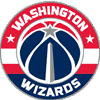 Bradley Beal, Wizards
Bradley Beal, Wizards
After John Wall's season-ending injury, Beal averaged 27.2 points, 6.0 assists, 5.1 rebounds and 1.8 steals per game. Had he posted those numbers across the entire campaign, Beal would have been one of only two players to average at least 25 points, 5 rebounds, 5 assists and 1.5 steals -- the other being James Harden. With Wall still on the shelf, Beal will again take on enormous offensive responsibility, so last season's career-best production could be replicable.
Tier 3: Elite Stars
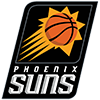 Devin Booker, Suns
Devin Booker, Suns
Booker reached career-highs in field-goal percentage (46.7%) and assists (6.8) last season. However, with the Suns bringing in Ricky Rubio, it's possible Phoenix envisions Booker as more of a pure scorer than a combo guard, so there's a good chance his assists decrease. While Booker's role may be in flux, he's unquestionably the Suns' No. 1 offensive option, and he should continue to be one of the league's highest-volume scorers.
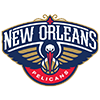 Jrue Holiday, Pelicans
Jrue Holiday, Pelicans
Last season, Holiday set career highs in a handful of categories, and his average of 7.7 assists ranked fifth in the league. With Anthony Davis dealt to the Lakers, Holiday will have an opportunity to take on even more responsibility, but the Pelicans have surrounded the veteran with a deep and capable cast of young players and veterans. The arrival of Lonzo Ball, in particular, could mean more time off the ball for Holiday, who will look to bounce back as a shooter after hitting a career-low 32.5 percent of his threes last season.
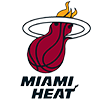 Jimmy Butler, Heat
Jimmy Butler, Heat
Given the talent around him, Butler's level of responsibility decreased in Philadelphia, but he still managed 18.7 points, 5.3 rebounds, 4.0 assists and 1.9 steals per game. Now with the Heat, Butler is the clear-cut best player on the roster, and he'll be the engine of the halfcourt offense. As a result, it's quite possible Butler's usage jumps back up to Chicago levels. However, fantasy owners must take into account Butler's health. Since his age-24 season, Butler is averaging just 68.2 appearances per year, and he's played 65 games or fewer in each of the last two seasons.
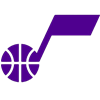 Donovan Mitchell, Jazz
Donovan Mitchell, Jazz
Last season, Mitchell logged a 30.9 percent usage rate -- good for seventh in the NBA -- on his way to 23.8 points, 4.2 assists, 4.1 rebounds and 1.4 steals per game. He still needs to become more efficient (43.2% FG), but Mitchell made strides as a three-point shooter as the season went on, and the arrivals of Bojan Bogdanovic and Mike Conley should help space the floor. Conley, in particular, could take some possessions away from Mitchell, but there will be no questions as to whose team this is going forward.
Tier 4: High-potential Starters
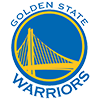 D'Angelo Russell, Warriors
D'Angelo Russell, Warriors
Russell's final season with the Nets was the best of his career, as he made his first All-Star team and became the leader of a playoff team. However, Russell was shipped off to Golden State in a sign-and-trade in July. For as long as Klay Thompson is sidelined, Russell will slot in next to Steph Curry and fill the role of the Warriors No. 2 offensive option. There will likely be an adjustment period, though playing alongside a virtuoso in Curry could unlock even more of Russell's offensive game. Replicating last season's production feels like a very realistic outcome.
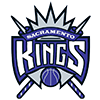 Buddy Hield, Kings
Buddy Hield, Kings
Last season was a breakout for the former No. 6 overall pick, as Hield set career-highs nearly across the board. Hield has emerged into one of the league's elite threats from long range. His 278 total hits from deep ranked fourth in 2018-19, and his career three-point percentage (41.9%) is seventh among all active players. Heading into 2019-20, Hield should maintain the same role with the Kings, so we shouldn't be surprised if he repeats his efforts from last year.
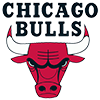 Zach LaVine, Bulls
Zach LaVine, Bulls
LaVine had the most productive season of his career in 2018-19, though he still dealt with missed time due to injury, playing in just 63 games. While it's possible the emergence of Lauri Markkanen and the arrival of Tomas Satoransky could cut into LaVine's role, he should remain a strong fantasy producer after posting a career-best 23.7 points per game on 47/37/83 shooting splits last season.
Tier 5: Reliable Starters
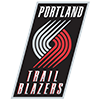 C.J. McCollum, Trail Blazers
C.J. McCollum, Trail Blazers
McCollum's numbers dipped, albeit only slightly, across several categories in 2018-19. But roster moves and the injury to Jusuf Nurkic also leaves the Blazers thinner than in recent years. McCollum's ceiling as a player is only so high, but he's among the most consistent shooting guards in the league, having averaged 21.6 points, 3.7 rebounds, 3.6 assists and 2.4 made threes over the last four seasons. In that span, McCollum has missed only 17 games -- 12 of which came last season.
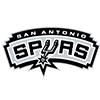 DeMar DeRozan, Spurs
DeMar DeRozan, Spurs
While DeRozan saw his scoring dip to 21.2 points per game in his first season with the Spurs, he set career-highs in assists (6.2) and rebounds (6.0). Playing for coach Gregg Popovich resulted in DeRozan abandoning his emerging three-point shot, however, and that's not expected to change. While DeRozan isn't the most exciting pick, he has All-Star upside, a relatively clean bill of health, and a track record of consistency.
Tier 6: Mid-level Starters
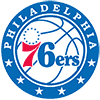 Josh Richardson, 76ers
Josh Richardson, 76ers
Richardson is coming off a breakout campaign in which he contributed career-highs in points (16.6), assists (4.1), rebounds (3.6), made threes (2.2) and minutes (34.8) per game. The numbers were impressive, but they were met with a dip in efficiency, as Richardson shot just 41.2 percent from the field and 35.7 percent from three -- both down from from his 2017-18 figures. While Richardson may have been underqualified for the role he was asked to play in Miami, he'll be overqualified for his role as the fourth, or even fifth, option in Philadelphia. His offensive numbers could decrease, but look for Richardson to return to being among the league's best three-and-D guards.
 Lou Williams, Clippers
Lou Williams, Clippers
Williams is coming off the two most productive seasons of his NBA career with the Clippers. But things are about to change dramatically with the arrival of superstars Kawhi Leonard and Paul George. While Williams' workload will probably remain relatively unchanged, the scoring burden on the 32-year-old's shoulders will be drastically lighter. He'll still hold plenty of value, but it's unlikely Williams tops 20 points per game for a third straight season.
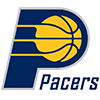 Jeremy Lamb, Pacers
Jeremy Lamb, Pacers
Lamb had the best season of his career in 2018-19 as the second-leading-scorer in Charlotte. The 6-foot-5 wing can play shooting guard or small forward and is expected alongside Malcolm Brogdon to start until Victor Oladipo returns. Lamb will likely garner a similar share of minutes in Indiana as he did in Charlotte, but with other quality scoring options on the roster, his scoring and three-point production could take a minor hit.
 Gary Harris, Nuggets
Gary Harris, Nuggets
Persistent lower-body injuries only allowed Harris to appear in 57 games last year, and he clearly wasn't himself when on the court. Losing time to injury is nothing new for Harris, who is averaging just 64.3 games per season once becoming a full-time starter in 2015-16. But he demonstrated his upside two seasons ago, putting up 17.5 points, 2.9 assists, 2.6 rebounds, 2.3 threes and 1.8 steals across 34.4 minutes. Entering his age-25 season, Harris is a prime bounceback candidate, but the Nuggets' abundant backcourt depth could prevent him from securing heavy minutes on a night-to-night basis.
 Victor Oladipo, Pacers
Victor Oladipo, Pacers
Oladipo saw his 2018-19 season cut short by a torn quadriceps tendon after 36 games -- an injury that figures to keep him sidelined into December or perhaps even January. In the interim, Jeremy Lamb will fill the shooting guard spot, while Malcolm Brogdon projects as Lamb's -- and eventually, Oladipo's -- backcourt mate. Factoring in offseason acquisitions and the potential for rustiness and rest days, Oladipo makes for a risky fantasy acquisition until he proves he's 100 percent healthy.
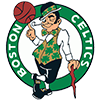 Marcus Smart, Celtics
Marcus Smart, Celtics
Smart comes into the new season with more clarity as to his role in the Celtics' backcourt than he's had in three seasons. Known for his tough-minded defense, Smart recorded a career-high 2.0 combined blocks/steals per game in 2018-19 and finished third in the NBA in total steals. Though Smart produced a four-year low in points (8.9), he improved his efficiency tremendously, hitting a career-best (by far) 36.4 percent of his 4.3 three-point attempts per game. Kemba Walker stepping in for Kyrie Irving might be a wash, but with Terry Rozier now in Charlotte, Smart may be asked to handle more of the backup point guard duties this season.
Other Players to Monitor
Tim Hardaway Jr, Mavericks; Nic Batum, Hornets; Andrew Wiggins, Timberwolves; J.J. Redick, Pelicans; Joe Harris, Nets; Jaylen Brown, Celtics; Danny Green, Lakers; Evan Fournier, Magic; RJ Barrett, Knicks; Kevin Huerter, Hawks; Justin Holiday, Pacers

